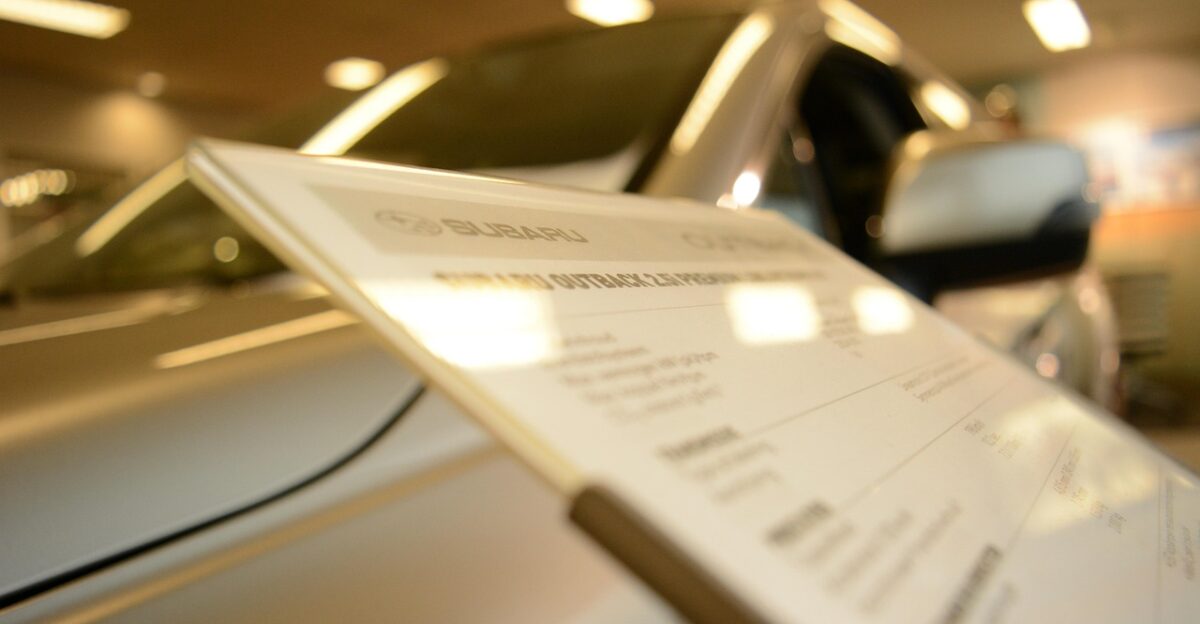
A troubling practice is materializing in the US auto industry: lawsuits are piling up against dealerships for marketing used cars as new.
In recent legal files, buyers paid full price for vehicles advertised as new, only to discover previous mileage, leasing accounts, or absent titles thereafter.
There are different cases from Jeeps to luxury SUVs, but the problem is the same: false advertising. Two recently filed lawsuits in Florida have reignited anxieties about dealer honesty nationwide.
Are these independent incidents or symptoms of a bigger problem? As the legal battles unfold, the details require greater attention.
Growing Legal Firestorms

In the US, consumers are starting to take dealerships to court for allegedly marketing pre-owned vehicles as new.
In two recent Florida lawsuits, buyers argue they paid full price for what appeared to be brand-new cars. However, odometer readings, withheld titles, and vehicle histories revealed something else.
While these cases originated from Florida, their implications stretch far wider, pointing to a broader issue in how cars are marketed and sold nationally.
The Land Cruiser That Wasn’t

Shawn Crowley, a victim of the scandal, thought he was buying a brand-new 2024 Toyota Land Cruiser for $98,719 from Sun Toyota.
The paperwork documented only ten miles. But two days later, a dashboard alert prompted him to check. He saw that nearly 5,000 miles were logged.
The dealership argued it was a clerical error, but Crowley alleges he was overcharged and misled. His lawsuit claims that the same models sell for much less and that the car was not new, as promoted.
The Jeep With a Hidden Past

Lilly Althauser‑Benson thought she was buying a new Jeep Wrangler 4Xe, along with a factory window sticker and eligible for a $3,750 federal EV tax credit.
But she states that the dealership concealed the title and its previous lease following her purchase. Her attorney contends this violated the federal Odometer Act by obscuring the car’s history. She’s now suing for what she dubs a deliberate and costly deception.
Legal Foundations for These Lawsuits

These lawsuits lean on federal statutes like the Odometer Act and state consumer protection laws. Misrepresenting a vehicle’s condition, mileage, or ownership status isn’t just corrupt, it’s usually illegal. Dealers are supposed to declare vehicle facts before selling.
Not doing so can result in lawsuits, financial penalties, and reputational damage. These aren’t just customer complaints, they’re legal challenges that could change industry standards.
Allegations of Systemic Deception

Both lawsuits go further than calling out isolated mistakes. Crowley argues he was overcharged based on a mileage misstatement.
Althauser‑Benson reasons she was conned into believing a used vehicle was new and tax-credit eligible. These are framed as system failures, or worse, intentional misrepresentation. This doesn’t only have financial implications but also rattles public trust regarding car dealerships.
Silence from the Dealerships

So far, the accused dealerships, Sun Toyota and Jerry Ulm Chrysler-Dodge-Jeep-Ram, have remained quiet.
A representative mentioned a potential clerical error in a particular case, but no formal public responses have been made.
As more lawsuits emerge, internal documents or communications could shed light on whether these were honest mistakes, or something more calculated.
A Nationwide Problem?

While these cases are in Florida, they mirror complaints across the country. Hidden lease histories, “junk fees,” and odometer conflicts are shared.
Consumers and news outlets have reported similar issues in different states. These new lawsuits may be the tipping point, prompting more buyers to come forward and regulators to take a closer look at dealership practices in the US.
Buyer Beware: How to Protect Yourself

No matter where you buy, be careful. Ask questions, examine the title, enquire about previous ownership, and check mileage if possible.
Don’t presume a factory sticker means a vehicle is new. If buying an electric or hybrid car, check that it qualifies for tax credits, as many used models don’t. Doing your due diligence could save you thousands and help avoid becoming another legal case.
What Happens Next in Court

These lawsuits are still in the early stages. As they advance, dealerships may face court‑ordered refunds or monetary penalties.
Discovery could expose internal practices, and the fallout could be widespread if wrongdoings are found. These cases could also empower other buyers who feel duped to pursue their own legal remedies, leading to further scrutiny nationwide.
New Federal Protections Coming

The Federal Trade Commission is getting the message. The new CARS Rule, effective on July 30, 2024, bans deceptive approaches like hidden fees, “yo-yo financing,” and false car status claims.
It also prohibits concluding deals before paperwork is done. These lawsuits highlight why such rules matter and why federal enforcement could change dealership conduct across the US.
Why This Should Matter to Everyone

These aren’t just reports about a few unfortunate buyers. They reveal cracks in a crooked dealership system.
Beyond economic loss, misrepresented cars can cause insurance, legal, and tax complications. By accentuating these cases, the courts may help reset expectations and remind sellers that advertising can sometimes be based on exaggerated truths.
What to Watch For

Stay tuned for court hearings, dealership reports, headlines, and possible settlements. Internal dealership records could be released.
Regulatory bodies may step in, and media watchdogs will likely follow the story closely. More car buyers could step forward with similar claims. And these cases in Florida could be just the beginning.
Final Takeaway

Lawsuits against American dealerships accused of selling used vehicles as new send a clear message: misrepresentation has consequences.
Buyers must be prudent, and sellers need to be transparent. As the legal process evolves, it may set a new bar for how cars are advertised and sold in the US.